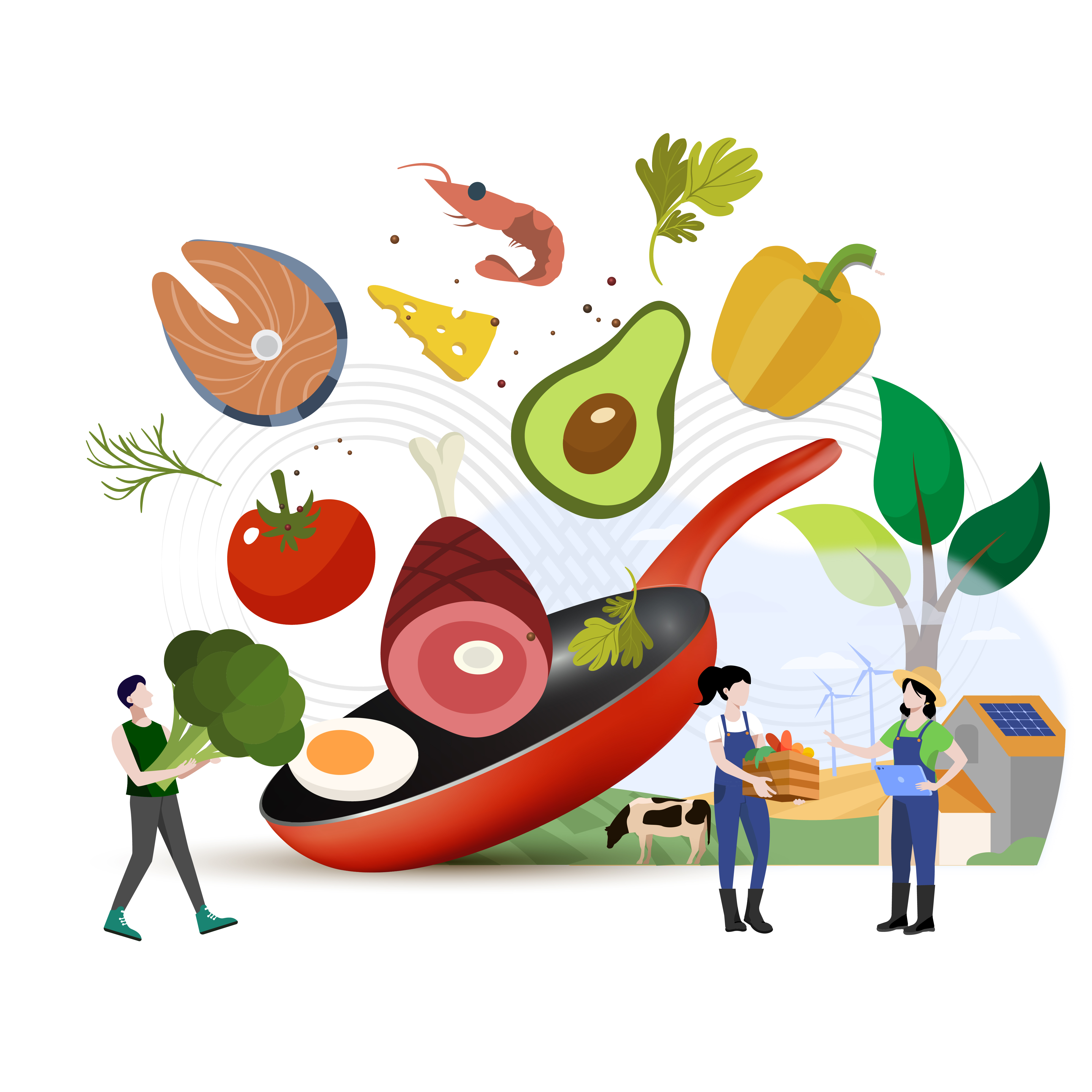Our world is rapidly changing. Increasing food consumption by a growing population, together with changing dietary habits, poses an immense challenge for the global food system. A crucial question is how to meet the increasing demand for food and provide healthy diets for all for the decades to come without undermining the Earth’s resources and crossing planetary boundaries, beyond which the prospects for humanity may be threatened.
The world’s population has increased by two billion during the last 25 years and is projected to reach 8.5 billion by 2030 and 9.8 billion in 2050 (United Nations World Population Division 2017). The Millennium Development Goals contributed to a fall in the percentage of undernourished people from 23.3% in 1990–1992 to 12.9% in 2014–2016. Still, there remain more than 800 million undernourished persons in the world, and the absolute numbers are increasing. The Sustainable Development Goals (SDGs) have the ambition not only to end poverty and hunger by 2030 but also to ensure that ‘‘all people, at all times, have physical, social and economic access to sufficient, safe and nutritious food which eets their dietary needs and food preferences for an active nd healthy life’’. This puts a focus on all aspects of the food systems from farm to fork, especially at a time when we are facing a pandemic of our generation that has hit hard to the food supply chain.
Case Study: A report of the EC FOOD 2030 Independent Expert group outlines an agenda for a climate-smart and sustainable food systems for a healthy Europe. The report is focused on four key areas: Nutrition for sustainable and healthy diets, climatesmart and environmentally sustainable food systems, circularity and resource efficiency of food systems and innovation & empowerment of communities. This relevant case study provides following approaches for a sustainable lifestyle focusing on Food Systems.
 Food is one of the most important links for achieving Sustainable Lifestyle. Think about what you are consuming in a day and ask yourself these questions: are we getting enough nutrients?; where does the food come from; how is the food processed?; how many single-use plastics are used for the meal and is it hygienic? Even though as individuals, we want to have a sustainable lifestyle, there might be other conditions, beyond our control, that do not support our desires. If we look deep down into the supply chain, agriculture could be a starting point which has a large impact on the environment. How should we deal with agro-industry waste? With the better systems, not only will the productivity of agricultural increases, but also the consumers’ and workers’ health and lifestyle will be made better and more sustainable. This webinar tries to bring the answer of how you can be involved in the food value chain and how you can choose to have a more sustainable lifestyle.
Food is one of the most important links for achieving Sustainable Lifestyle. Think about what you are consuming in a day and ask yourself these questions: are we getting enough nutrients?; where does the food come from; how is the food processed?; how many single-use plastics are used for the meal and is it hygienic? Even though as individuals, we want to have a sustainable lifestyle, there might be other conditions, beyond our control, that do not support our desires. If we look deep down into the supply chain, agriculture could be a starting point which has a large impact on the environment. How should we deal with agro-industry waste? With the better systems, not only will the productivity of agricultural increases, but also the consumers’ and workers’ health and lifestyle will be made better and more sustainable. This webinar tries to bring the answer of how you can be involved in the food value chain and how you can choose to have a more sustainable lifestyle.